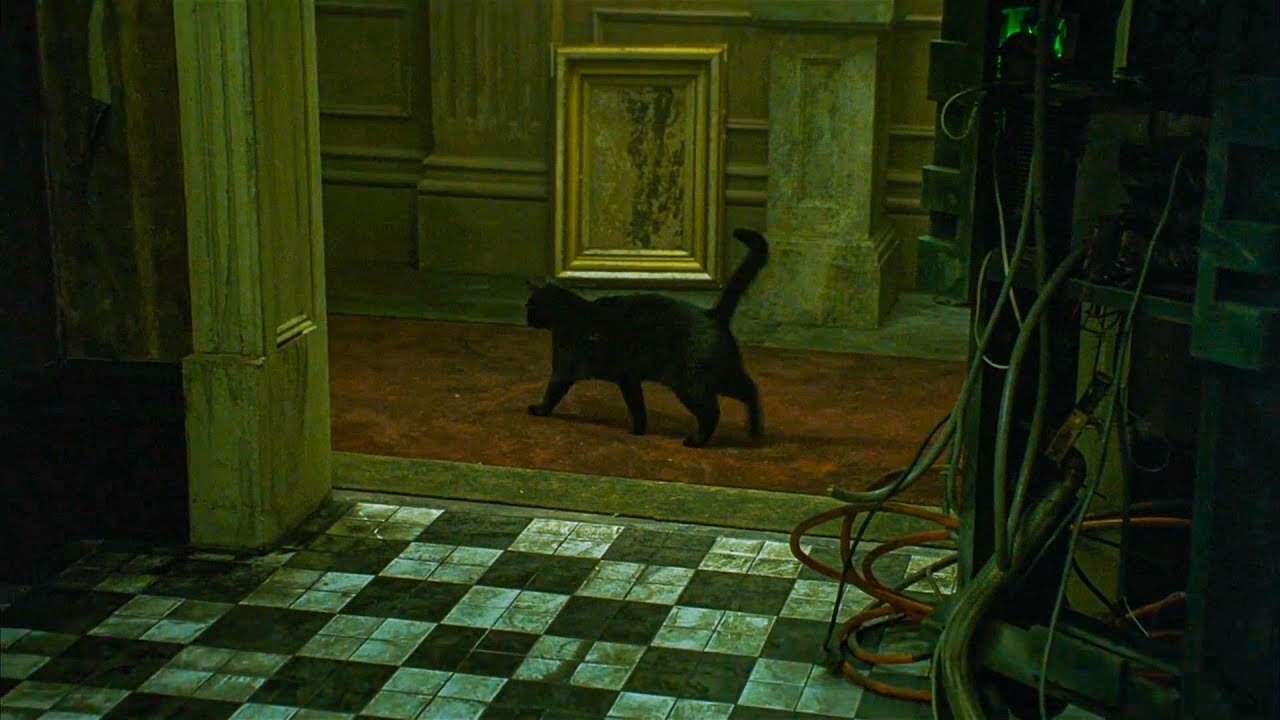Premium Only Content

( -0610 ) Creators of the Real Matrix - Part 2 - Explains The 'Inevitability' of Conflicts (Looking In Cleopatra's Little Library)
Creators of the Real Matrix - part 2 (audio redo)
This is further exploration of the Knights Templar, their "great circle" known as the Axis of Evil, and how it's used to bring into being, symbolically express and also commemorate. Hence by occultist actions finds it's way significantly into our past, present and future in unbelievable ways, that yet are too mathematically demonstrable to be coincidences. Through occult details which are kept hidden intentionally, this allow for successful sharing by the occultists with their own, of their manipulation of the majority by a relatively few true insiders. To accomplish this very early on in world history, it was necessary to seize from the Middle East the remnants of the Library of Alexandria which had already experienced losses one way or another. Witnesses in Iraq and Iran have explained that the looting of artifacts and historical evidence continues to be accomplished yet I haven't seen any significant media reporting or discussion.
"The Library dwindled during the Roman period, from a lack of funding and support." It's hard to find a better example of a ridiculous sentence on Wikipedia. Huge political forces surrounded the library and wished to steal away the contents, yet they talk as if it were like a modern day NPR and simply lost funding... :D:D:D
Which makes the meaning of the word Israel quite surprising. Israel literally means, “One who struggles with G‑d.”
"
The origin of the name Israel is a Biblical verse, referring to our forefather Jacob: “Your name is Israel, because you struggled with G‑d and with man, and prevailed.”
"
Or is it more of an occult expression of something known to mystery school graduates or occult students in and around ancient Egypt?
Isis, resurrector for Ra, God over all other gods.
Is-Ra-El
Isis:
Isis was a major goddess in ancient Egyptian religion whose worship spread throughout the Greco-Roman world. Isis was first mentioned in the Old Kingdom as one of the main characters of the Osiris myth, in which she resurrects her slain brother and husband, the divine king Osiris, and produces and protects his heir, Horus.
Ra:
As the creator god & father of all other Egyptian gods, Ra is said to have been the chief deity in ancient Egypt. Ra has, in different periods, been labeled "The King of the Gods," the "sky god," and the "controller of the sun." Ra controlled the sky, earth, and underworld. He was worshipped across Egypt, and when worshippers wanted to raise their own gods to a higher power, they would meld them with Ra.
Elohim:
Elohim (Hebrew: אֱלֹהִים, romanized: ʾĔlōhīm: [(ʔ)eloˈ(h)im]), the plural of אֱלוֹהַּ (ʾĔlōah), is a Hebrew word indicating "gods" or "godhood". Although the word is plural, in the Hebrew Bible it usualy takes singular verbal or pronominal agreement and refers to a single deity, particularly the God of Israel in the majestic plural. In other verses it refers to the singular gods of other nations or to deities in the plural.
Morphologically, the word is the plural form of the word eloahand related to el. It is cognate to the word 'l-h-m which is found in Ugaritic, where it is used as the pantheon for Canaanite gods, the children of El, and conventionally vocalized as "Elohim". Most uses of the term Elohim in the later Hebrew text imply a view that is at least monolatrist at the time of writing, and such usage (in the singular), as a proper title for Deity, is distinct from generic usage as elohim, "gods" (plural, simple noun).
Rabbinic scholar Maimonides wrote that Elohim "Divinity" and elohim "gods" are commonly understood to be homonyms. One modern theory suggests that the notion of divinity underwent radical changes in the early period of Israelite identity and development of Ancient Hebrew religion. In this view, the ambiguity of the term elohim is the result of such changes, cast in terms of "vertical translatability", i.e. the re-interpretation of the gods of the earliest recalled period as the national god of monolatrism as it emerged in the 7th to 6th century BCE in the Kingdom of Judah and during the Babylonian captivity, and further in terms of monotheism by the emergence of Rabbinical Judaism in the 2nd century CE.Another theory, building on an idea by Gesenius, argues that even before Hebrew became a distinct language, the plural elohim had both a plural meaning of "gods" and an abstract meaning of "godhood" or "divinity", much as the plural of "father", avot, can mean either "fathers" or "fatherhood". Elohim then came to be used so frequently in reference to specific deities, both male and female, domestic and foreign (for instance, the goddess of the Sidonians in 1 Kings 11:33), that it came to be concretized from meaning "divinity" to meaning "deity", though still occasionally used adjectivally as "divine".
-
 LIVE
LIVE
Game On!
13 hours agoJerry Jones to pick Deion Sanders or Kellen Moore as Dallas Cowboys' next head coach!
694 watching -
 UPCOMING
UPCOMING
Jeff Ahern
30 minutes agoFriday Freak out With Jeff Ahern (What Hostages?)
-
 13:24
13:24
EvenOut
12 hours ago $2.18 earnedMATRIX AGENTS TAKE OVER REALITY!
14K2 -
 11:27
11:27
Reforge Gaming
12 hours agoThe GTA 6 Problem
34.7K2 -
 1:24:23
1:24:23
Kyle Rittenhouse Presents: Tactically Inappropriate
12 hours ago $2.10 earnedThe Lawman
16.7K2 -
 10:36
10:36
Clownfish TV
11 hours agoMSNBC and Rachel Maddow NEED Trump to Stay in Business...
26.4K3 -
 4:10
4:10
PerpetualHealthCo
18 hours agoFDA Bans Red Dye No.3
10.1K2 -
 59:57
59:57
Trumpet Daily
21 hours ago $4.39 earnedRemembering Herbert W. Armstrong - Trumpet Daily | Jan. 16, 2025
15.1K13 -
 26:07
26:07
The Lou Holtz Show
14 hours agoThe Lou Holtz Show S 2 Ep 1 | Tony Rice on Championship Leadership and Notre Dame Legacy #podcast
29.1K1 -
 53:37
53:37
Weberz Way
15 hours agoGOODBYE JOE, TRUMPS CABINET, LA FIRES, & KEEP TIKTOK
16.4K